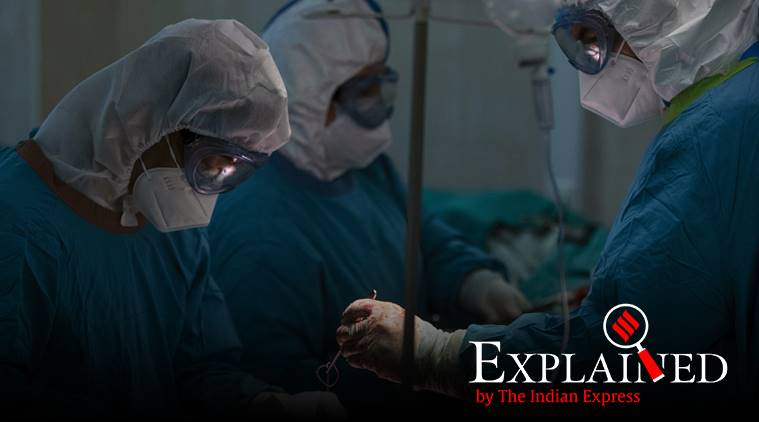
The Indian Express
New Research: Surgeries held up, how long to clear backlog?
To help ease the backlog, lead author Dr Amit Jain has proposed several strategies to increase surgical throughput, including more use of telemedicine.
by Explained DeskNon-essential surgeries have been suspended around the world because of the Covid-19 pandemic. In the US, a new study by Johns Hopkins University researchers found that it may take between seven and 16 months for surgeons to complete the backlog of elective orthopaedic surgeries. This accounts for more than a million surgeries in the US for spinal fusion and knee and hip replacements.
The study is published in The Journal of Bone and Joint Surgery. Lead author Dr Amit Jain said that in fields such as orthopaedic surgery, where procedures are frequently performed in an inpatient setting, the ramp-up may be slower than surgeries typically done in outpatient facilities. “We will keep adding to the backlog as long as we are not operating at 100% capacity,” Jain said in a statement.
Using a national database of hospital inpatient data, Jain and colleagues modelled the number of current and forecast spinal fusion and hip and knee replacement surgeries in the United States. In an optimistic scenario where most elective surgeries are back to full capacity in June, it would take approximately seven months to get through the backlog. Delays to the ramp-up to full capacity could extend the backlog to 16 months.
To help ease the backlog, Jain has proposed several strategies to increase surgical throughput, including more use of telemedicine. He also suggested making more timeslots available in operating rooms for orthopaedic surgeries.
Source: Johns Hopkins University